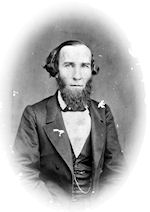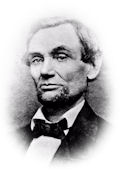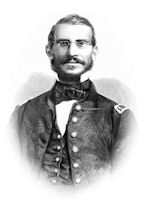FORT SUMTER, S.C., April 1, 1861.
(Received A. G O., April 4.)
Col. L. THOMAS, Adjutant-General U. S. Army:
COLONEL: I have the honor to report that everything is still and quiet, as far as we can see, around us. The South Carolina Secretary of War has not sent the authority, asked for yesterday, to enable me to send off the discharged laborers. Having been in daily expectation, since the return of Colonel Lamon to Washington, of receiving orders to vacate this post, I have kept these men here as long as I could; but now, having nearly completed the important work of cleaning up the area, &c., I am compelled, in consequence of the small supply of provisions on hand, to discharge them. An examination of the accompanying report of the A. A. C. S. will show that the supply of provisions brought over would, had the issues been limited to my command, have lasted for a longer period than that mentioned in my letter of December 26, 1860. I have not made frequent mention of the question of our rations, because the Department was kept fully informed from time to time, of the state of our supply. Lieutenants Talbot and Hall gave full information in reference to it when they went on, and on the 27th of January a detailed statement was sent on, from which any one in the Commissary Department could have told, knowing the number of souls in the fort, including the Engineer laborers, the exact amount on hand at any given time.
I told Mr. Fox that if I placed the command on short allowance I could make the provisions last until after the 10th of this month; but as I have received no instructions from the Department that it was desirable I should do so, it has not been done. If the governor permits me to send off the laborers we will have rations enough to last us about one week longer.
I am, colonel, very respectfully, your obedient servant,
ROBERT ANDERSON,
Major, First Artillery, Commanding.

[Inclosure.]

FORT SUMTER, S. C., April 1, 1861.
Maj. ROBERT ANDERSON, First Artillery, Commanding:
MAJOR: In compliance with your request, I have the honor to submit the following list of provisions sold to Capt. J. G. Foster, Corps of Engineers, for the subsistence of the employees in his department at this post, and have expressed the quantities in numbers of rations, viz:
Five and one-half barrels of pork–one thousand four hundred and sixty-seven rations.
Twenty barrels of flour–three thousand four hundred and eighty-five rations.
One hundred and eighty pounds hard bread–one hundred and eighty rations.
Two and one-half bushels of beans–one thousand rations.
One hundred and seventy-four pounds coffee–one thousand seven hundred and forty rations.
Seven hundred and seventy-four pounds sugar–five thousand one hundred and sixty rations.
These provisions, which have necessarily been consumed by others, would have added to the time we have already been at this post subsistence for the following number of days, respectively: Pork–Sixteen and twenty-seven-ninetieths days.
Flour and hard bread–Forty and sixty-five-ninetieths days. Beans–Eleven and one-ninth days. Coffee–Nineteen and one-third days. Sugar–Fifty-seven and one-third days.
Or, with what is now on hand, at least thirty-five days of comfortable subsistence for the command, including the laundresses, who were sent away about two months ago.
I have the honor to be, very respectfully,
NORMAN J. HALL,
Second Lieutenant, First Artillery, A. A. C. S.







